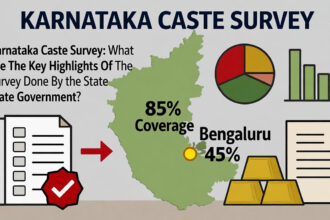Amaravati, June 9, 2025 — Andhra Pradesh Chief Minister N. Chandrababu Naidu has announced a significant shift in state population policy, unveiling plans to offer financial incentives to families with more than two children. This pivot is part of a comprehensive strategy to address the state’s falling fertility rate and invest in long-term human capital.
A Policy U‑Turn from Two‑Child Norm
Just a year ago, Andhra Pradesh barred individuals with more than two children from contesting local body elections. Now, landholding incentives and welfare benefits are being reimagined to embrace larger families. CM Naidu explained that the state will evaluate families as a unit, with additional children attracting proportionally higher cash support.
A Broader “Zero Poverty P4” Agenda
This initiative is woven into the larger Zero Poverty P4 scheme, which connects affluent households with economically disadvantaged ones. Known for its public‑private‑people‑partnership approach, P4 also includes reforms like unrestricted maternity leave, mandatory on‑site childcare at workplaces, and direct financial aid of ₹15,000 per schoolchild—deposited straight into mothers’ accounts.
Fertility Alarm Bells
In recent years, Andhra Pradesh’s fertility rate has fallen below the replacement threshold, prompting concern over future demographic imbalances and economic slowdown. CM Naidu stressed that increasing the birth rate is vital to mitigating potential workforce shortages and ageing‑population pressures.
Learning from Other States
Andhra Pradesh is not alone in this effort. Sikkim and Mizoram have already introduced similar incentives, and Tamil Nadu’s leadership has raised alarms over population-based delimitation of constituencies—echoing burgeoning population policy shifts across India.
What to Watch
Policy rollout: Details on bonus structures, applicable tiers for third or more children, and implementation timelines.
Budgetary implications: Whether the state can sustain long-term fiscal support.
Public response: Anticipated reactions from civil society, women’s rights groups, and child welfare advocates.
By reorienting policy from population control to growth encouragement, Andhra Pradesh underscores demographic vitality as a pillar of its Swarna Andhra 2047 vision. Whether this bold experiment can reverse fertility trends remains to be seen—but one thing is clear: the state is betting on its families.
















